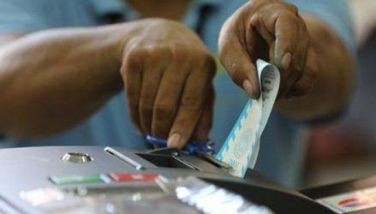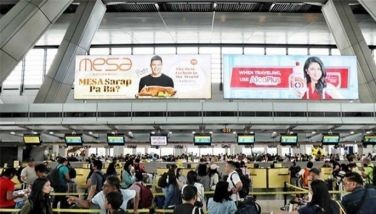Deadline eyed on health workers’ benefit distribution

MANILA, Philippines — President Duterte may impose a deadline on the giving of compensation to families of health workers who died on the frontlines of the coronavirus pandemic, Malacañang said yesterday.
Some senators have assailed the Department of Health (DOH) over the delayed giving of financial aid to families of health workers who died and to medical frontliners who became severely ill because of the virus.
They blamed the delay on the failure of the DOH to craft the implementing rules of the Bayanihan to Heal as One law, which guarantees P1 million to the family of each health worker who died from SARS-CoV-2 and P100,000 to each medical frontliner who caught a severe coronavirus infection while on duty.
Senators have described the delay as a “serious neglect” and have called for the immediate release of compensation.
Presidential spokesman Harry Roque said the Palace shares the senators’ views about the delayed release of cash assistance.
“We agree with the senators, that’s why in my talk I will ask the President, what is now your mandate? Because the last time we talked about stranded OFWs (overseas Filipino workers), he simply said I’ll give these people a deadline. So tomorrow (June 4), when I meet with the President I expect him to give the responsible parties again a deadline when to give the benefits to those who have gotten sick,” Roque told ABS-CBN News Channel.
Senators earlier called out the DOH for its failure to implement the law that compensates public and private health workers who die while combatting the COVID-19 pandemic.
The matter was raised during plenary debates on Senate Bill 1564 or the proposed Bayanihan to Heal as One Act, which is to replace RA 11469 when it expires before the end of the month.
Sen. Sonny Angara, sponsor of the bill and chairman of the finance committee, aired his frustration over the report of the DOH on the availment of compensation, which he described as “criminal” as there appears to be neglect on the part of the agency to issue the implementing rules and regulations.
Senate President Vicente Sotto III wrote yesterday Health Secretary Francisco Duque III seeking an explanation and telling him to implement the provision of the law immediately. The benefits are retroactive to Feb. 1, 2020.
The DOH, however, assured the concerned healthcare workers that they will be compensated.
According to DOH Undersecretary Maria Rosario Vergeire, such compensation is mandated under the Bayanihan law.
“We bear witness to the efforts and sacrifices of our healthcare workers every day. That is why the DOH is committed to effectively implement Section 4 (F)” of the law, she said, noting this will be done through a joint administrative order by the DOH, Department of Budget and Management and Department of Labor and Employment which is still being finalized.
Declining mortality
Contrary to the pronouncement of the DOH, an expert from the Philippine Society for Microbiology and Infectious Diseases (PSMID) said yesterday that the declining mortality from coronavirus disease is not because of good management of cases.
At a press conference, former PSMID director Rontgene Solante noted the downward trend in deaths was because the elderly stayed at home during the enhanced community quarantine (ECQ).
“I have to correct that. Not because our death rate is decreasing, it means our management has improved. In the first place, there is really no cure yet for COVID-19,” maintained Solante, who is also chief of the Fellowship Program Adult Infectious Disease and Tropical Medicine at the San Lazaro Hospital.
He added that based on the trend of hospital admission, there are less admitted patients manifesting severe infections.
Aside from this, a majority of symptomatic patients came from the age group 20 to 40 years old. Also, there are fewer elderly admitted because during the ECQ, they were not able to go out of their houses.
At a recent briefing, Undersecretary Vergeire announced that there was a downward trend in mortality from COVID-19 and this meant there was better management of cases, enabling them to recover from the virus. Paolo Romero, Sheila Crisostomo
- Latest
- Trending






























